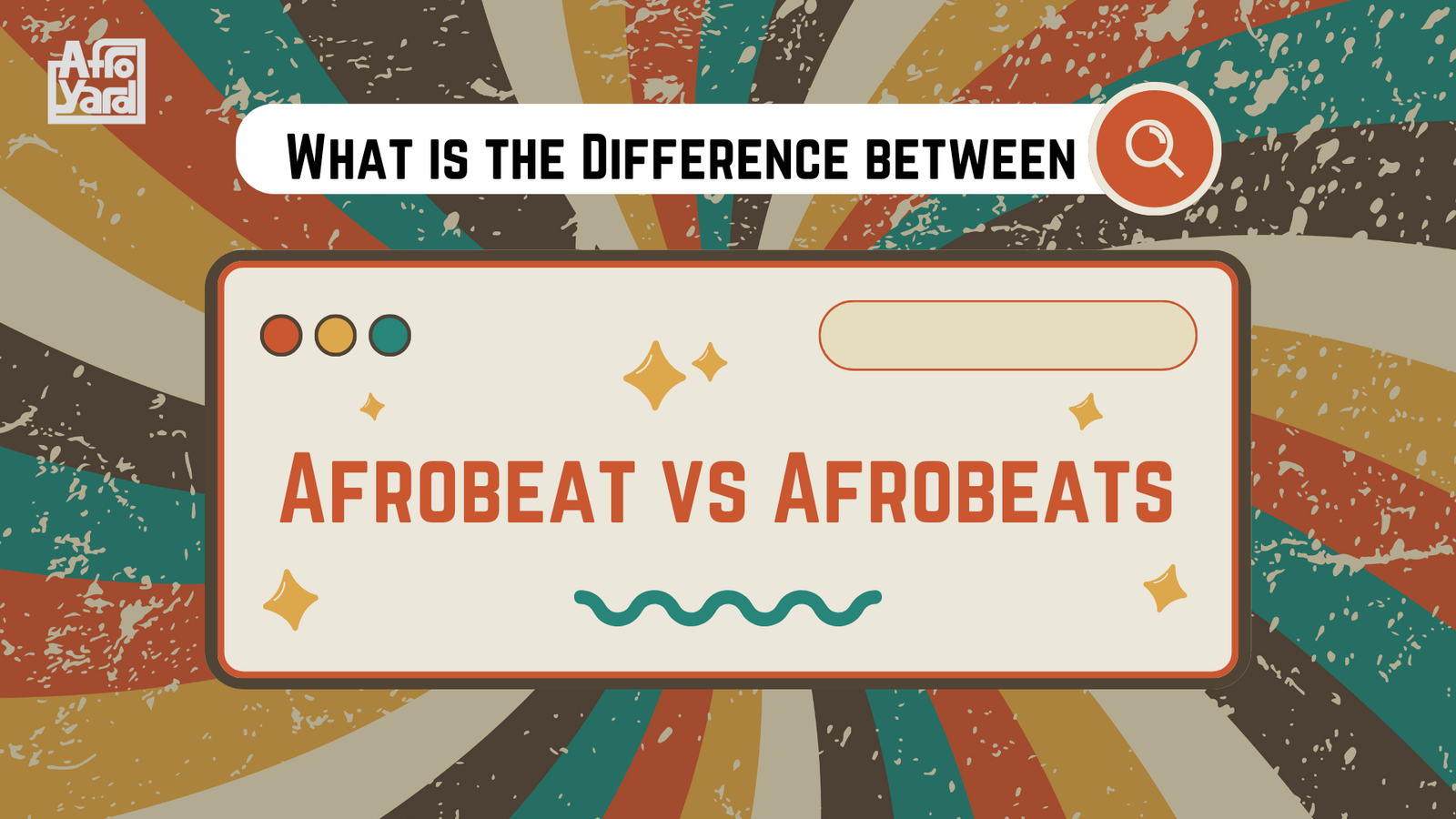What is the difference between Afrobeat and Afrobeats?
What is the difference between Afrobeat and Afrobeats? If you are a fan of African music, you may have

What is the difference between Afrobeat and Afrobeats?
If you are a fan of African music, you may have heard of the terms Afrobeat and Afrobeats. But do you know what they mean and how they differ? In this blog post, we will explore the origins, characteristics and influences of these two musical genres that have shaped the sound of Africa and beyond.

Afrobeat: The Legacy of Fela Kuti
Afrobeat is a musical genre that emerged in Nigeria and Ghana in the 1960s and 1970s. It is widely credited to Fela Kuti, a Nigerian musician, composer and activist who is considered the father of Afrobeat. Fela Kuti was inspired by various musical styles, such as jazz, funk, highlife, fuji and traditional West African rhythms.
He also used his music as a platform to express his political and social views, often criticizing the corruption and oppression of the Nigerian government and the Western influence on Africa.
Afrobeat is characterized by complex polyrhythms, call-and-response vocals, long instrumental solos, horn sections and a prominent use of percussion instruments. Afrobeat songs are usually very long, lasting up to 30 minutes or more on record or even longer in live performances. Afrobeat also involves a large band, often featuring saxophones, guitars, keyboards, drums and other instruments.
Afrobeat has influenced many musicians across Africa and the world, such as Tony Allen, Hugh Masekela, Manu Dibango, Antibalas, Seun Kuti and many others. Afrobeat has also been incorporated into other genres, such as hip hop, jazz, rock and electronic music.
Afrobeats: The New Sound of Africa
Afrobeats (with an s) is a term that refers to the contemporary popular music of Africa, especially West Africa. It is not a single genre, but rather a collective name for various styles that have emerged in the late 20th and early 21st centuries. Afrobeats is influenced by Afrobeat, but also by other genres, such as hip hop, dancehall, reggae, R&B, house and hiplife.
Afrobeats songs are usually shorter, catchy, danceable and produced in studio with digital technology.
Afrobeats has become the dominant musical expression of Africa in recent years, reaching global audiences through artists like Wizkid, Davido, Burna Boy, Tiwa Savage, Shatta Wale and many others. Afrobeats has also collaborated with major international stars, such as Drake, Beyoncé, Justin Bieber and Ed Sheeran. Afrobeats has also inspired new dance moves and fashion trends among African youth.
The Difference Between Afrobeat and Afrobeats
As we have seen, Afrobeat and Afrobeats are two distinct musical genres that share some common roots but also have significant differences. Here are some key points to remember:
- Afrobeat is a musical genre that originated in Nigeria and Ghana in the 1960s and 1970s by Fela Kuti. Afrobeats is a term that describes the contemporary popular music of Africa since the late 20th century.
- Afrobeat is influenced by jazz, funk and traditional West African rhythms. Afrobeats is influenced by Afrobeat as well as hip hop, dancehall, reggae and other genres.
Afrobeat is characterized by long songs, complex rhythms, live instruments and political lyrics. Afrobeats is characterized by short songs, catchy melodies, studio production and diverse themes. - Afrobeat involves a large band with horn sections and percussion instruments. Afrobeats involves mainly electronic sounds and beats.
Afrobeat has influenced many musicians across Africa and the world. Afrobeats has reached global popularity through collaborations with international artists.
We hope this blog post has helped you understand the difference between Afrobeat and Afrobeats. If you want to learn more about these genres or listen to some examples,
Source: AfroYard.net







